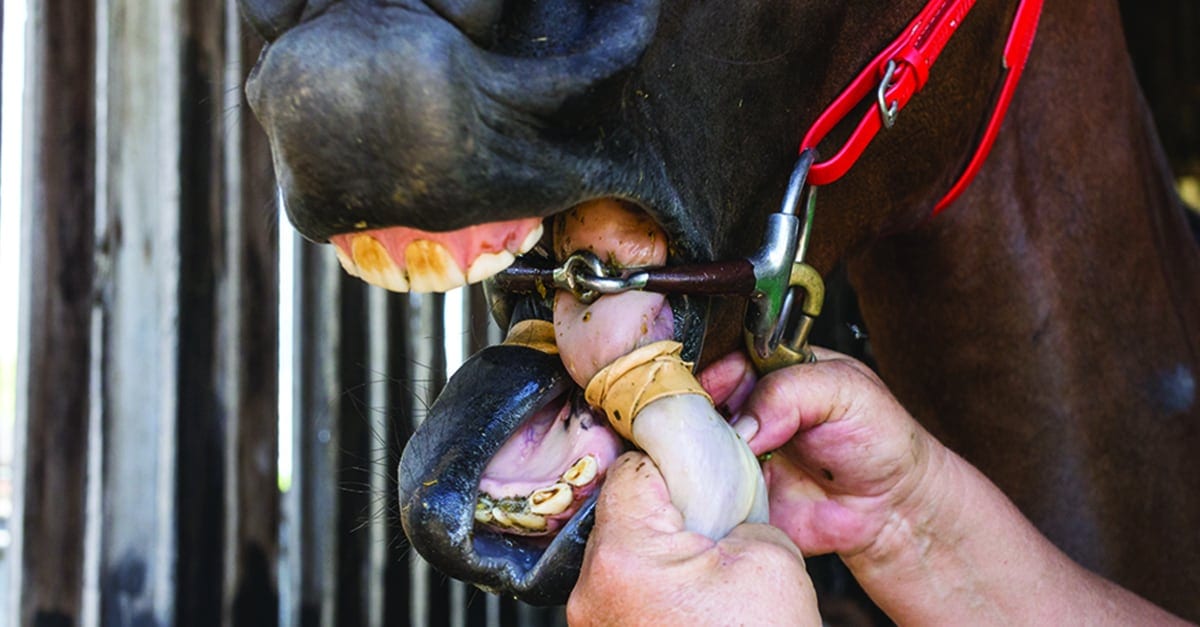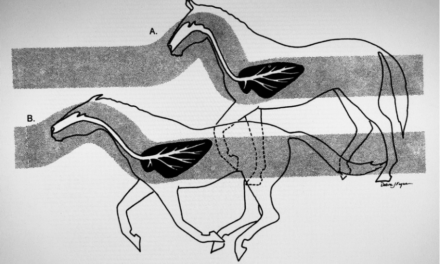Tongue Ties
In what looks like an effort to standardise the materials used for tying horses’ tongues, Racing Australia have amended the rules, specifically banning nylon stockings and listing rubber bands and leather straps of a minimum 15mm, and lycra or neoprene ties of a minimum 50mm as the only materials permitted. The new rule comes into effect on April 1st.
A tongue tie is a strap that is tightly wrapped around a horse’s tongue and then tied to the lower jaw to keep the tongue in place during horse racing and training.
They provide more control over a horse that, in an effort to relieve bit-induced pressure, retracts and/or gets the tongue over the bit. Despite weak evidence of their effectiveness, tying the tongue is a conservative treatment for upper airway obstruction, a common condition affecting racehorse performance.
It is estimated that over 20% of horses race with tongue ties and, to date, there is limited research to show they improve racing performance while the evidence they can have adverse welfare affects is mounting.
Tongue ties are only permitted under the rules of horse racing, polocrosse and polo, although some countries, like Germany, have already imposed a blanket ban on the practice.
Despite the rule change, racing regulations are still vague, failing to specify how tightly tongue ties can be applied and for how long.
Read our in-depth article on tongue ties.
Read Dr Robert Cook’s feature on improving respiratory function in performance horses.
Find out why horses retract and/or put their tongue over the bit.
The RSPCA has been calling for all Australian horse racing codes to address the widespread use of tongue ties highlighting serious and unnecessary animal welfare concerns. They argue that tongue ties restrict blood flow to the tongue, causing pain and distress, as well as difficulty swallowing and accommodating the bit.
The move by Racing Australia has surprised trainers and other stakeholders, who took to Twitter asking why the rule was introduced without consultation and what had prompted the change, especially since they are allowing lycra bands which are made of a similar material as stockings.
In Australia, many consider tongue ties an essential risk-management tool that can enhance performance and jockey safety and consider these benefits outweigh the costs to horse welfare.
Not like racing Australia to slip in a new rule with zero consultation with trainers and jockeys! @RacingAust how many at VAC and COSC have ridden a horse with a leather tongue tie? pic.twitter.com/LzfMqsGaoQ
— Daniel Bowman (@djbowmanracing) February 16, 2020
Fitting an elastic style tongue tie:

Fitting an elastic tongue tie is a messy and slippery affair. After firmly grabbing the tongue outside the mouth, the band is wrapped once or more times around the tongue then around the lower jaw, securing the tongue in place.

Once fitted, tongue ties are fairly inconspicuous, but the tightness restricts the blood flow to the tongue, causing pain. It is also likely to make swallowing difficult, and by squeezing the tongue at the level of the bit’s mouthpiece, it reduces the cushioning effect the tongue has over the bars of the mouth, which may increase the risk of injury and bruising caused by bit pressure. Reports of injuries and lacerations to the tongue are not uncommon. Images Horses and People Magazine.




















Trackbacks/Pingbacks